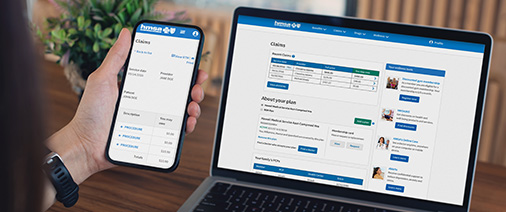Your Postpartum Visits
What is a postpartum visit? Why is it important?
- Whether this is your first child or not, you need postpartum care after having a baby.
- Giving birth is no small feat. It takes a physical and emotional toll.
- After giving birth, you need medical care and support to recover.
- Postpartum visits with your ob-gyn (or midwife) are key to helping you stay as healthy as possible, and gives you and your doctor the opportunity to catch and address questions and issues early.
- Postpartum visits are important for everyone that just gave birth. It’s even more important if you had health concerns before or during pregnancy, including high blood pressure and diabetes.
- Ideally, your ob-gyn will schedule several postpartum checkups, since it’s hard to cover everything needed to ensure your best health in one visit and because things can change over time.
- Note: If you experienced a miscarriage, stillbirth, or neonatal death, it’s just as important to have a follow-up visit with your ob-gyn.
When should your first postpartum visit be?
- The first checkup should be done within three weeks of delivery.
- Note: If you’ve had high blood pressure during pregnancy, it’s important to monitor your blood pressure after you give birth. Your doctor may want to see you sooner, such as three to 10 days after birth.
- Your additional visits should be scheduled as discussed with your ob-gyn.
- Discuss your options for in-person and telehealth visits with your provider.
- Even if you feel fine, go to all of your postpartum checkups.
- Your body goes through many changes after birth.
- It takes time to heal and recover.
- Some people have postpartum complications, which can be serious and life-threatening. If you ever experience extreme pain, trouble breathing, heavy bleeding, fever higher than 100.4F, or severe sadness, loneliness, or despair, contact your doctor immediately or go to the emergency room.
(Note: This isn’t a comprehensive list of signs and symptoms of a serious condition. Please consult your ob-gyn to discuss your unique situation.)
What to expect at your postpartum visit
- Your time to discuss how you’re healing and adapting to parenthood.
- Physical exam: Your provider will
- Conduct a physical exam to ensure your body is healing properly and look for warning signs of complications. The exam may include:
- Pelvic exam to check your vagina (birth canal), uterus (womb), and cervix to make sure you’re healing well. Note: If you had a cesarean section, this should include a check of the incision and surrounding area.
- Breast exam to look for blocked milk ducts, unusual redness, tenderness, or pain.
- Check your:
- Vital signs including your blood pressure, heart rate, and weight.
- Any other health conditions you may have, like diabetes.
- This is a good time to discuss any concerns or questions you may have, including:
- Breastfeeding and lactation.
- Spotting and bleeding.
- Postpartum complications and health problems, including postpartum depression and preeclampsia.
- Birth control and family planning, including when you can safely resume sex.
- Physical and emotional changes.
- Nutrition and vitamins.
- When you can safely resume exercise.
- Follow up on any health conditions that existed before or developed during pregnancy.
- Catching up on immunizations.
How to prepare for your postpartum visits
Before your postpartum visits, take a few minutes to really think about how you’re doing – physically and mentally. Make a list of the things that you want to discuss with your doctor and all your questions.
Create a postpartum care checklist to help with your visits. We can help you get started: My Postpartum Visit Checklist [PDF].


